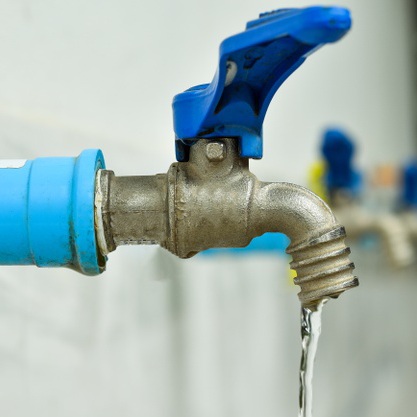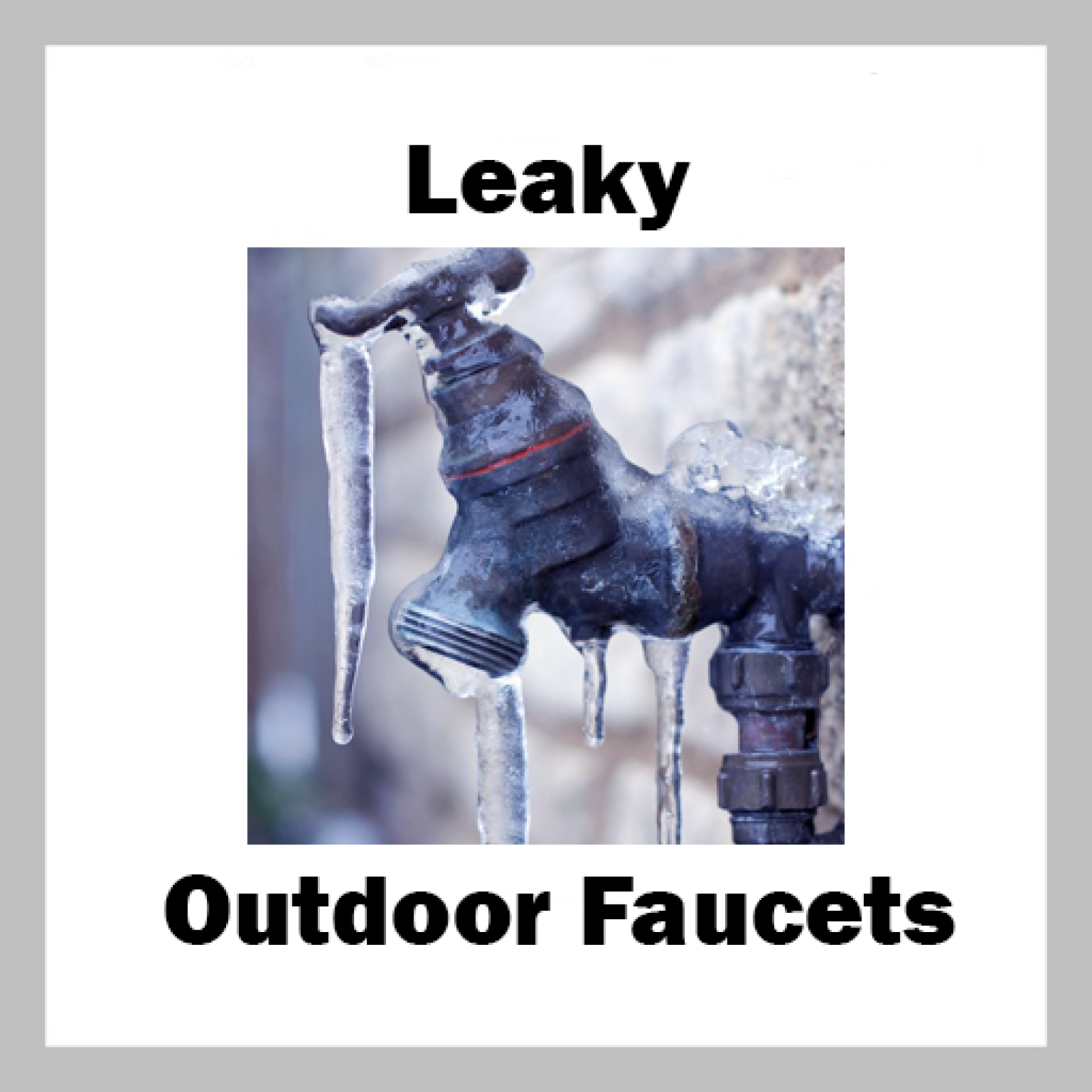Leaky Outdoor Faucets
There is a lot to remember when preparing your home for the winter, putting gardening tools to the shed, checking on the snowblower, and finding where the snow shovels got to, shutting windows and the list goes on. Turning off the water to the outside faucets and covering them sometimes gets missed. In New Jersey, this can have expensive consequences, as the winters can start early and last long. This is one of the biggest issues you can encounter in the winter, as it leads to your pipes freezing, which can lead to them bursting. It isn’t usually the outside spigots that are the problem, although the spigots leaking can look like the issue, the pipework that supplies them are the culprits.
The easy answer is to drain your pipes.

Steps to Draining Outdoor Pipes and Faucets:
Turn Off Exterior Water Supply Valve
In older homes, the valves are located at or near the ceiling somewhere close to the outside faucet. In newer homes, the valves are usually located right next to the main water valve and usually are labeled.
Remove Hoses and Connectors
Take away the outside hoses or any connectors on your outdoor faucets.
Remove Hoses and Connectors
Take away the outside hoses or any connectors on your outdoor faucets. Also, make sure to drain the hoses before putting them away for the season.
Completely Drain All Faucets
Turn the faucets on full blast until no more water flows out. Once the water has stopped draining out, Turn the faucet back off completely.
Cover Faucets
You can cover the faucets with an insulated cover from any hardware or home improvement store. This will prevent anything from entering your faucets and pipes, including snow or ice. The heating inside your home will not be enough to protect the outside faucets.
Remember that water expands as it freezes, and ice takes up nearly 10% more space than water does. What that means is that a pipe already filled with water has no room for expansion if temperatures drop low enough for the water in the pipe to freeze. When that happens, something that has to give is usually the pipe itself, or the valves.
That’s when having the phone number to Jersey Plumbing comes in handy!
You can also insulate your pipes. This can help protect your plumbing and valves from extreme temperature variations. Make sure to seal any open spaces, gaps, or foundation cracks that allow cold air to circulate around the pipes. Close all the basement windows as well. If you have ever walked into your basement and it felt colder in one spot than the other, look for leaks or where heat might be escaping from. In the spring, remember to check the outdoor faucets for leaks before using the full water pressure. This applies even if you took care of the faucets before the worst of the winter season.
If you have any concerns about your pipes, valves, joints, or outside faucets being affected by the winter weather, call the experts at Jersey Plumbing can alleviate your concerns.
Jersey Plumbing(908) 281-7101
Remember! Sometimes the best tool is experience. When you need a Master Plumber to get the job done right, don’t hesitate to reach out to Jersey Plumbing Service for your plumbing needs.


Recent Comments